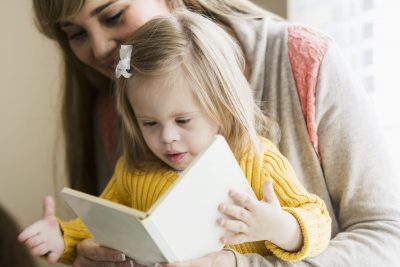Standard 2: Topics

Each of the standards has two or more components that further describe what is meant by the standard for a total of 27 components across the seven standards. This section identifies, what learners should know and be able to do based on that component to facilitate positive outcomes for children and families.
Component 2.1
Learners apply their knowledge of family-centered practices, family systems theory, and the changing needs and priorities in families’ lives to develop trusting, respectful, affirming, and culturally responsive partnerships with all families that allow for the mutual exchange of knowledge and information.
Learners who have mastered this component know and understand:
- Family systems theory
- Influence of biological, environmental, cultural, and societal factors on families’ structure, interactions, functions, and the family life cycle
- Families’ diverse knowledge and expertise about their children’s strengths and needs
Learners who have mastered this component are able to:
- Use relational practices to foster trusting partnerships with families
- Acknowledge child and family strengths and nurture positive interactions by actively listening, showing empathy, and respecting family perspectives
- Use participatory and collaborative practices, including soliciting families’ opinions and ideas, jointly sharing information, and involving families in identifying and obtaining needed resources
- Interact with families in ways that build on their strengths and capacities in working with their young children, such as:
- Jointly develop and implement individualized plans based on the families’ priorities and the child’s strengths and needs
- Jointly identify strategies to facilitate the child’s learning and development
- Gather information systematically to develop a deeper understanding of family uniqueness, circumstances, and changing priorities
- Consider factors such as social identities (e.g., culture, gender, sexuality, socio-economic status, marital status, and age) and stressors (e.g., trauma, mental health issues, and medical conditions), as they build relationships, exchange knowledge and information, and plan for individualized supports, such as:
- Ensure that classroom materials and activities represent the diversity of children and families represented in the program
- Adjust meeting times to accommodate families’ work schedules
- Use technology when appropriate to communicate with families
- Provide information to the family in their home language
- Engage in self-reflection of their own culture, beliefs, and experiences, and evaluate the impact and use that information to inform interactions with families and respond in sensitive and culturally affirming ways
Component 2.2
Learners communicate clear, comprehensive, and objective information about resources and supports that help families to make informed decisions and advocate for access, participation, and equity in natural and inclusive environments.
Learners who have mastered this component know and understand:
- Resources and supports for families in their program and community
- Their own implicit and explicit biases
Learners who have mastered this component are able to:
- Use effective communication strategies such as attending, listening, and asking clarifying questions
- Articulate unbiased, comprehensive, and clear information from multiple perspectives and sources such as other professionals, policies, research, and professional literature
- Share information about all available services and community resources
- Communicate in the families’ preferred mode of communication (e.g., using an interpreter, via technology) in IFSP/IEP meetings, home visits, parent-teacher conferences, etc.
- Identify and connect families to resources and supports needed to make informed decisions about their child’s services
- Collaborate with families in planning for transitions from one setting to another
- Use a range of strategies to support families in advocating for access and equity in natural and inclusive environments
- Reflect on their own biases
- Provide multiple opportunities for families to be engaged in program activities and governance
- Establish opportunities for families to connect with other families
Component 2.3
Learners engage families in identifying their strengths, priorities, and concerns; support families to achieve the goals they have for their family and their young child’s development and learning; and promote families’ competence and confidence during assessment, individualized planning, intervention, instruction, and transition processes.
Learners who have mastered this component know and understand:
- Family engagement practices essential for supporting and strengthening family capacity and well-being to promote child development and learning
- Culturally responsive evidence-based practices
- Adult learning strategies
Learners who have mastered this component are able to:
- Involve families as equal partners
- Use participatory practices such as acknowledging the family’s expertise, and supporting families in identifying strengths, priorities, and concerns
- Provide multiple opportunities for active family collaboration in decision-making, such as:
- Assessment – exchange knowledge, information, expertise to evaluate and synthesize information about the child’s strengths and needs
- Planning – create outcomes/goals, develop implementation plans, identify informal and formal supports and services
- Implementation – select and adapt culturally responsive evidence-based practices appropriate to each family
- Transition – evaluate transition options that meet identified needs and priorities
- Communicate and reflect with the family to evaluate monitor, and modify services, supports, and resources
- Use a range of intervention and instructional strategies to promote families’ competence and confidence such as video, coaching, consultation, modeling, and assistive technology
- Employ adult learning strategies when partnering with families